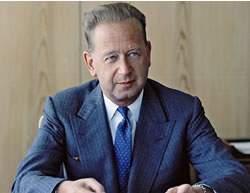UNITED NATIONS
 The United Nations is marking the centenary of its Public Service, which came into existence as a result of the Versailles Peace Conference in 1919 and the subsequent establishment of the League of Nations.
The United Nations is marking the centenary of its Public Service, which came into existence as a result of the Versailles Peace Conference in 1919 and the subsequent establishment of the League of Nations.
Commenting on the anniversary, Professor of Political Science at the University of Pretoria, South Africa, Henning Melber said the provision of an international Public Service mattered “because it would be impossible to promote and maintain a rules-based world order without it”.
“From the beginning, international Civil Servants were expected to be loyal to the aspirations of the international community and to remain neutral and independent of any authority outside their organisation,” Professor Melber, who has made an exhaustive study of the world body, said.
He said after World War II, the concept was developed by the United Nations’ second Secretary-General, Dag Hammarskjöld (pictured), who set “lasting standards that survive to this day”.
“An independent Civil Service was a huge part of Hammarskjöld’s arsenal,” Professor Melber said.
“As his numerous statements and speeches document, his terms in office were guided by strong and coherent ethics concerning the independence of the international Civil Service.”
He said at the core of Hammarskjöld’s ethics were integrity, loyalty to the principles of the UN Charter, independence from any national or regional interests and the courage to uphold these values.
Professor Melber said a century after the creation of an international Public Service, Mr Hammarskjöld deserved to be remembered for leading by example.
New York, 27 April 2019











